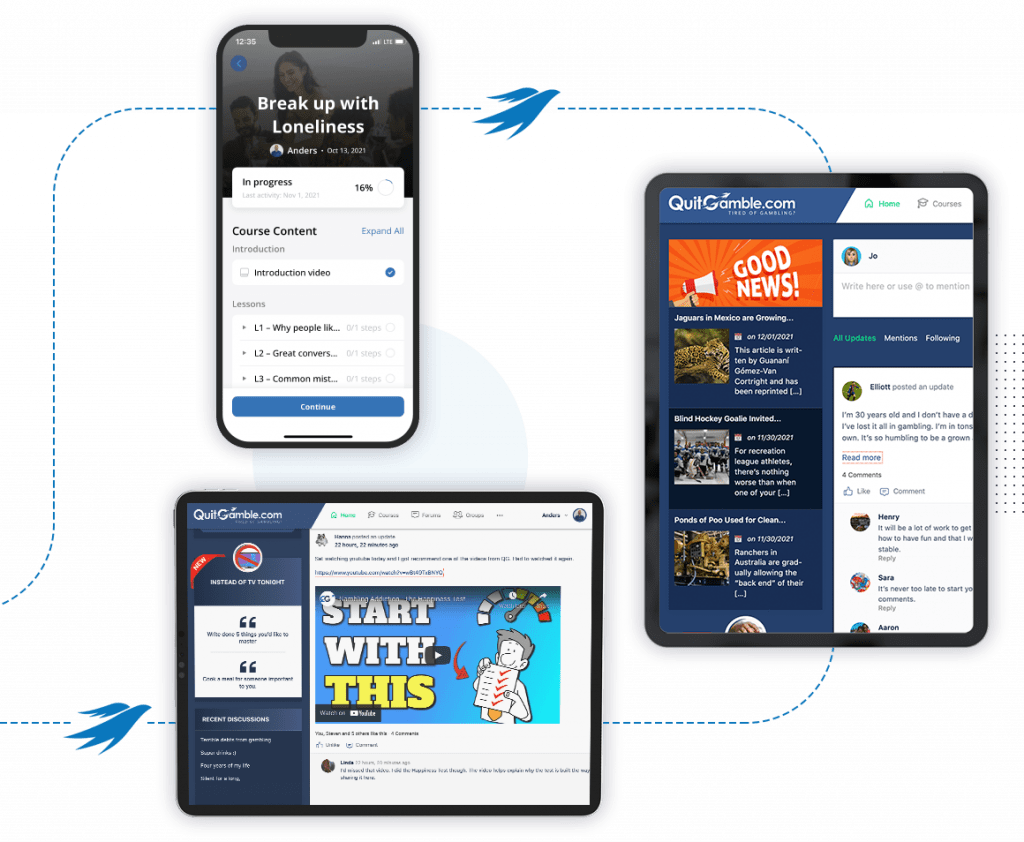How to stop Gambling Maryland
Are you tired of gambling and need help? Let’s guide you to recovery in Maryland.
- Available Gambling Support MD
- Tips to stop gambling Maryland
- Can you Self-Exclude?
If you live in any other US state,
select a state to find your state guide.
Select a State
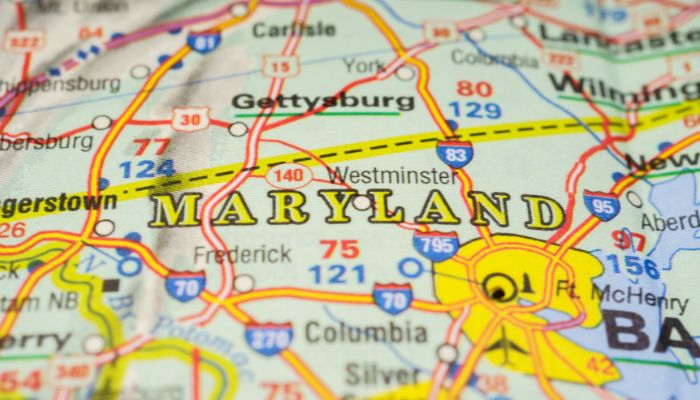
Let’s Get Started
Gambling can provide a sense of solace but can also create an unhealthy dependence. To better understand why people find gambling so attractive, the first step is to ask yourself: What does gambling do for me? It’s the starting point in any journey towards being free from gambling. The second step is to limit your exposure to triggers that lead to gambling. Just as it’s difficult not to eat ice cream if you have it in the freezer, reducing access to devices and gambling-related things will help. Our video course on creating a Change Plan refers to “cleaning up your physical space.”
The following are three tips to reduce your exposure to activities that may cause you to gamble:
- Switch email address: If you’ve ever registered anything online, chances are casinos now have your email information. Get a fresh start by changing your email address.
- Switch cellphone number: If you’ve given out your phone number, casinos may call or text you. Consider switching numbers.
- Stream instead: Avoid watching TV channels with gambling commercials and opt for streaming services.
These steps are key to decreasing the urge to gamble and taking control of your life.
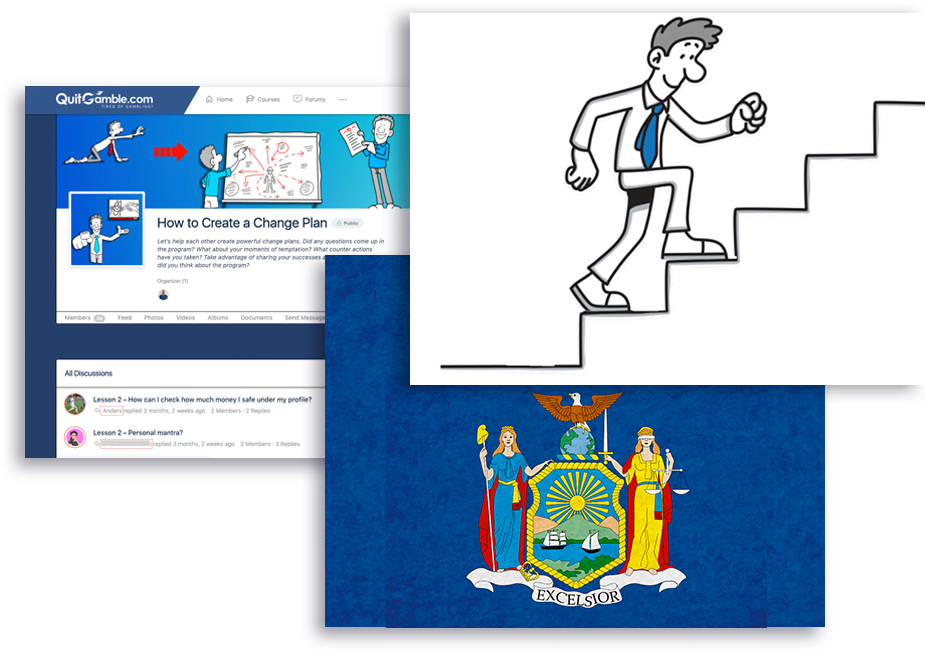
How to decrease your exposure to gambling ads?
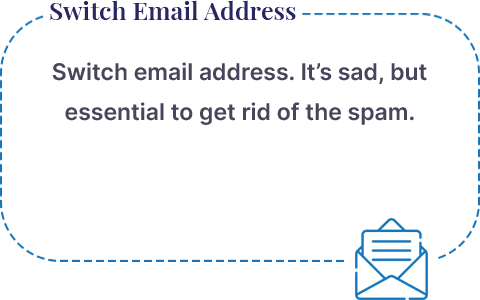
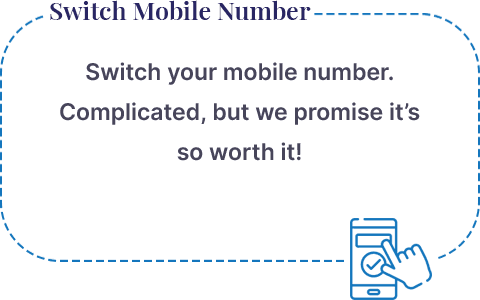
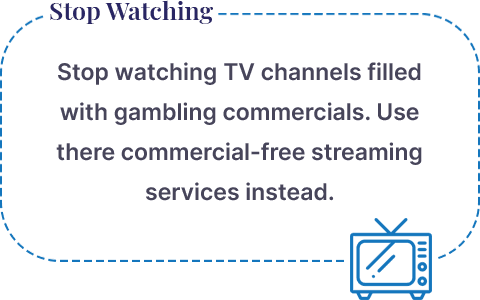
Gambling Support In Maryland
As a compulsive gambler in Maryland, here are some more resources that can be helpful.
- QuitGamble.com (We challenge you to challenge yourself)
- Gambler’s Anonymous Maryland (Classic 12-steps, or read QG vs. GA)
- Maryland Center of Excellence on Problem Gambling
- If you have suicidal thoughts, please Call National Suicide Prevention Hotline at 1-800-273-8255.
Have you ever felt out of control when it comes to gambling? If so, Maryland has resources available to help. Gambling support in MD is offered through organizations like QuitGamble.com, Gamblers Anonymous, and self-exclusion programs at casinos. Additionally, the Problem Gambling Helpline provides free, confidential counseling services 24/7 for anyone who needs assistance with problem gambling in Maryland.
Gamblers Anonymous (GA) is an organization that supports individuals struggling with problem gambling by providing mutual aid, support groups, and recovery meetings throughout the state.
Self-exclusion from gambling activities is also available in certain parts of Maryland. This program allows people to voluntarily exclude themselves from entering any casino or participating in any gaming activity within their chosen jurisdiction.
It’s important to note that this service does not protect against online gaming sites outside Maryland.
No matter where you are on your journey with problem gambling, know that help is readily available – whether it’s getting started with GA or taking advantage of the self-exclusion option. Don’t let addiction take away your freedom – reach out today and use the excellent resources in Maryland! Suppose you’re gambling in Maryland and want to stop gambling. It’s important to know that help is also available in neighboring states. Delaware, Pennsylvania, Virginia, and West Virginia all have resources for problem gambling, including hotlines, support groups, and counseling services.
QuitGamble.com – Online Support Platform
QuitGamble.com is a revolutionary solution for those struggling who want to quit gambling. It combines 24/7 help and the opportunity to get to the heart of the matter with a plethora of useful resources such as:
- A membership system with more than 3,500 participants from 110 countries
- Video courses
- Extensive Guides
- Email, chat, support groups, and a mobile application
These are available without charge and provide a strong sense of solidarity among those fighting addiction.
Let’s Kick Addiction’s Ass!
Maryland Center Of Excellence On Problem Gambling
The Maryland Center of Excellence on Problem Gambling (MCEPG) is a program of the University of Maryland School of Medicine that the Behavioral Health Administration funds. MCEPG aims to promote informed and healthy decision-making around gambling through public awareness, training and education, prevention, technical assistance, research, peer recovery support, and public policy initiatives. To achieve this, experts in psychiatry, medicine, epidemiology, social work, law, and others are brought together to collaborate.
If you or someone you know needs help with problem gambling, there are several resources available:
- Call or text the Maryland Problem Gambling Helpline at 1-800-GAMBLER (1-800-426-2537) for confidential assistance 24 hours a day.
- Get referrals from the helpline to clinicians across the state who specialize in problem gambling services free of charge.
- Attend Gamblers’ Anonymous or Gam-Anon meetings for additional support, or check out the Support Groups link for more information.
- Speak with a Peer Recovery Support Specialist for guidance on how to stop, limit, or control your gambling behavior and connect to necessary resources.
Gamblers Anonymous Maryland
Gambling can be an addictive vice that may seem impossible to break free from. In Maryland, there is hope for those struggling with compulsive gambling behavior through the services of Gamblers Anonymous (GA). GA is a fellowship of individuals who have committed to supporting one another in their journey toward abstinence from gambling. Like a lighthouse guiding lost travelers away from rocky shores, Gamblers Anonymous in Maryland offers shelter from the storm of problem gambling.
Those seeking help in Maryland can find solace by attending local meetings or accessing online resources, such as anonymous forums and blogs. Numerous helplines and treatment centers throughout Maryland also provide comprehensive problem gambling treatment services. The National Council on Problem Gambling also provides helpful information about treatment options and access to care across the state.
Maryland residents facing challenges related to gambling addiction may benefit from inpatient treatment services offered at specialized rehabilitation facilities. They will receive compassionate counseling and medical care tailored to their needs while working toward long-term recovery goals.
Blocking Gambling in Maryland
Gambling addiction can be a grave problem in Maryland. The state has provided the Voluntary Self-Exclusion Program to help those affected take control of their gambling habits. This program allows individuals to exclude themselves from any casino within the state for either two years or a lifetime, depending on the individual’s preference.
To sign up for this program, one must first gain access to all relevant information. In addition to self-excluding oneself from casinos, other tools are available to limit opportunities to gamble. For example, it is possible to ban oneself from withdrawing money from ATMs and using them at different casinos nationwide.
By taking proactive steps like the ones mentioned above and signing up for the Voluntary Self-Exclusion Program, those suffering from gambling addiction can address their issue and move forward.
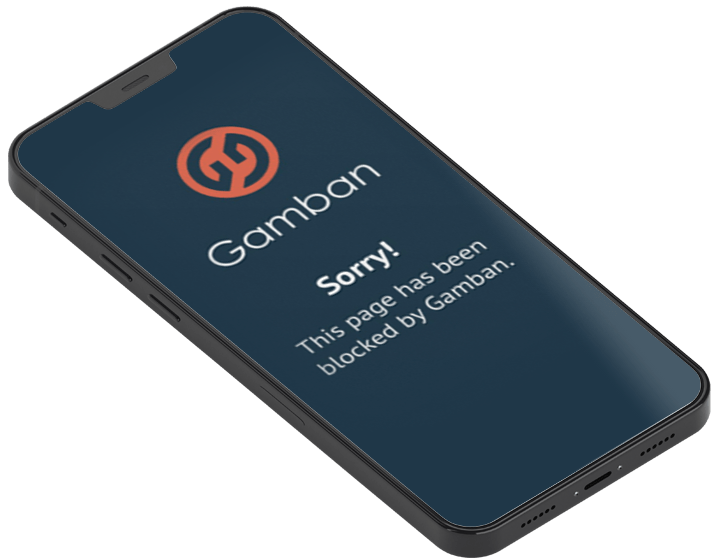
Do You Gamble Online In Maryland?
Gambling has become an increasingly popular activity in Maryland. However, it is currently illegal to gamble online. As a result, no self-exclusion program is available specifically for the state’s online casinos. Fortunately, those looking to prevent themselves from gambling online have some other options.
One such option is Gamban, a software that blocks access to gambling websites and apps on computers and phones. It can be installed directly from the app store and requires a subscription to uninstall. According to recent studies, using Gamban may reduce the risk of gambling relapse for problem gamblers. Here are just a few reasons why you should consider downloading it:
- Blocks gambling sites and apps
- Has a subscription period before uninstalling
- Acts as a friend who helps when feeling urges to gamble
Gamban provides a valuable service to help keep people safe from online gambling. This software may be worth considering whether you’re trying to protect yourself or someone else.
Help A Gambling Addict In Maryland
Sportsbetting addiction can be a complex subject to discuss, mainly when the problem affects someone close to you. It is common for family members or friends of an affected individual to become co-dependent on their behavior and struggle with finding ways to help. There are resources available to assist in dealing with this issue, such as quitgamble.com, which provides support from other relatives, co-dependants, and former compulsive gamblers.
The guide includes:
- Learning to Speak Up: Developing the courage to vocalize your feelings and concerns.
- Seeing the symptoms of gambling addiction: Observing any changes in mood or attitude due to gambling.
- Preventing Co-Dependence: Finding a balance between being supportive and maintaining independence.
- Nonviolent Communication: Utilizing effective communication strategies.
- Action Plan: Establishing clear boundaries and setting achievable goals.
These suggestions provide invaluable insight into protecting oneself while delivering much-needed aid to those afflicted by gambling addiction. With these resources, it’s possible to become a hero, secure one’s wellbeing, and foster a better environment for all involved.
If you or someone you know is struggling with gambling addiction in Maryland, resources are available to help. The first step is to contact the Maryland Gambling Hotline at 1-800-GAMBLER for confidential advice and support. This hotline operates 24/7, so no matter what time of day, someone can always be reached for assistance.
Problem gamblers should also seek treatment from a qualified mental health professional. A therapist specializing in problem gambling will be able to provide counseling and other services that can help people break free from their gambling debt. The National Council on Problem Gambling also offers extensive information about treatment options and other nationwide resources.
Finally, family members may need to intervene if they notice signs of desperation due to financial losses associated with gambling. It’s important to create an environment where those affected feel safe seeking help without fear of negative judgment or punishment. With compassion and understanding, along with these helpful resources, individuals suffering from this disorder can get back on track toward recovery.
Let’s stop gambling Maryland
The struggle to stop gambling in Maryland is a long and difficult one. It’s like running an obstacle course; there are so many hurdles that it can feel impossible to progress. But with the right resources, guidance, and determination, anyone can overcome this addiction.
Suppose you find yourself needing help overcoming a gambling problem. Reach out for assistance immediately. The state offers financial aid for those suffering from gambling addictions through its Maryland Center of Excellence on Problem Gambling (MCEPG)
It may seem like an uphill battle, but remember: You have the power to take control of your life and free yourself from the chains of compulsive gambling. Don’t give up hope—you can do this! With proper support, education, and information, you, too, can reach the finish line on your journey to recovery.
 English
English Español
Español Français
Français Português
Português Svenska
Svenska